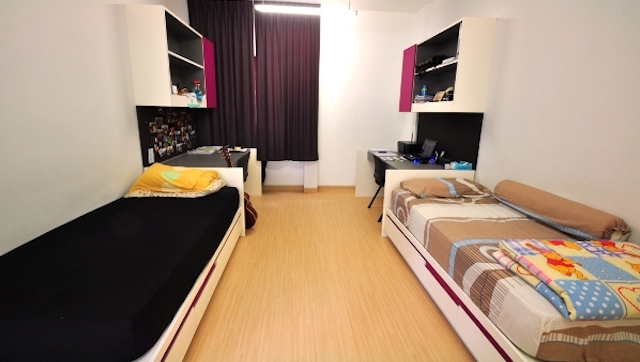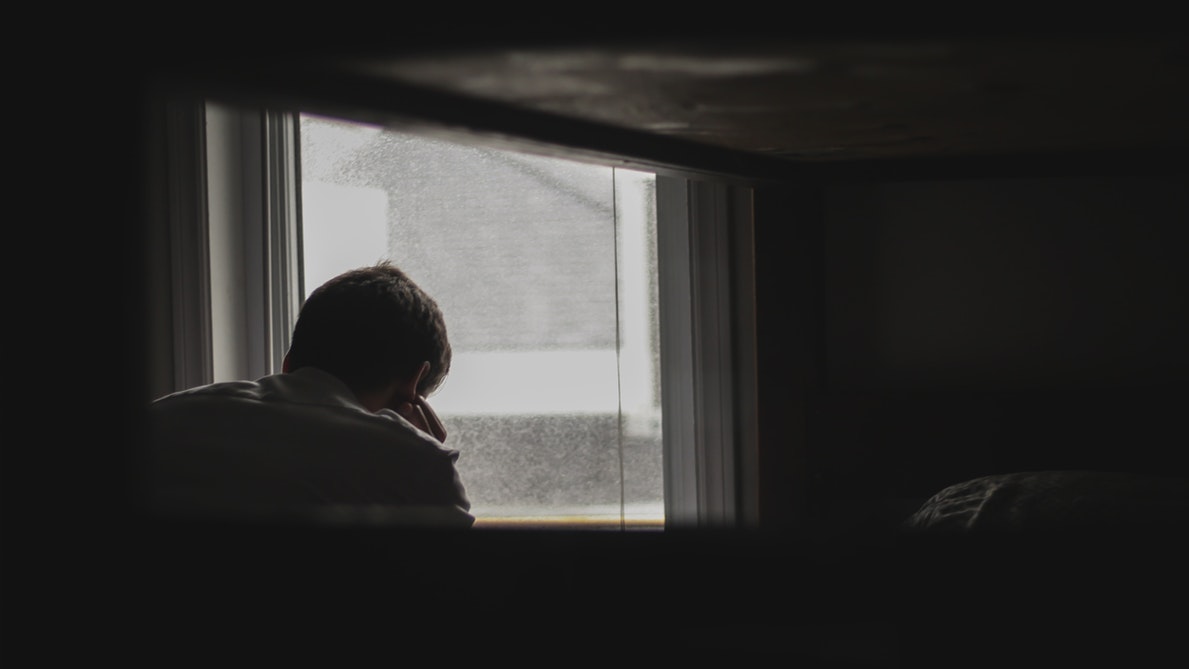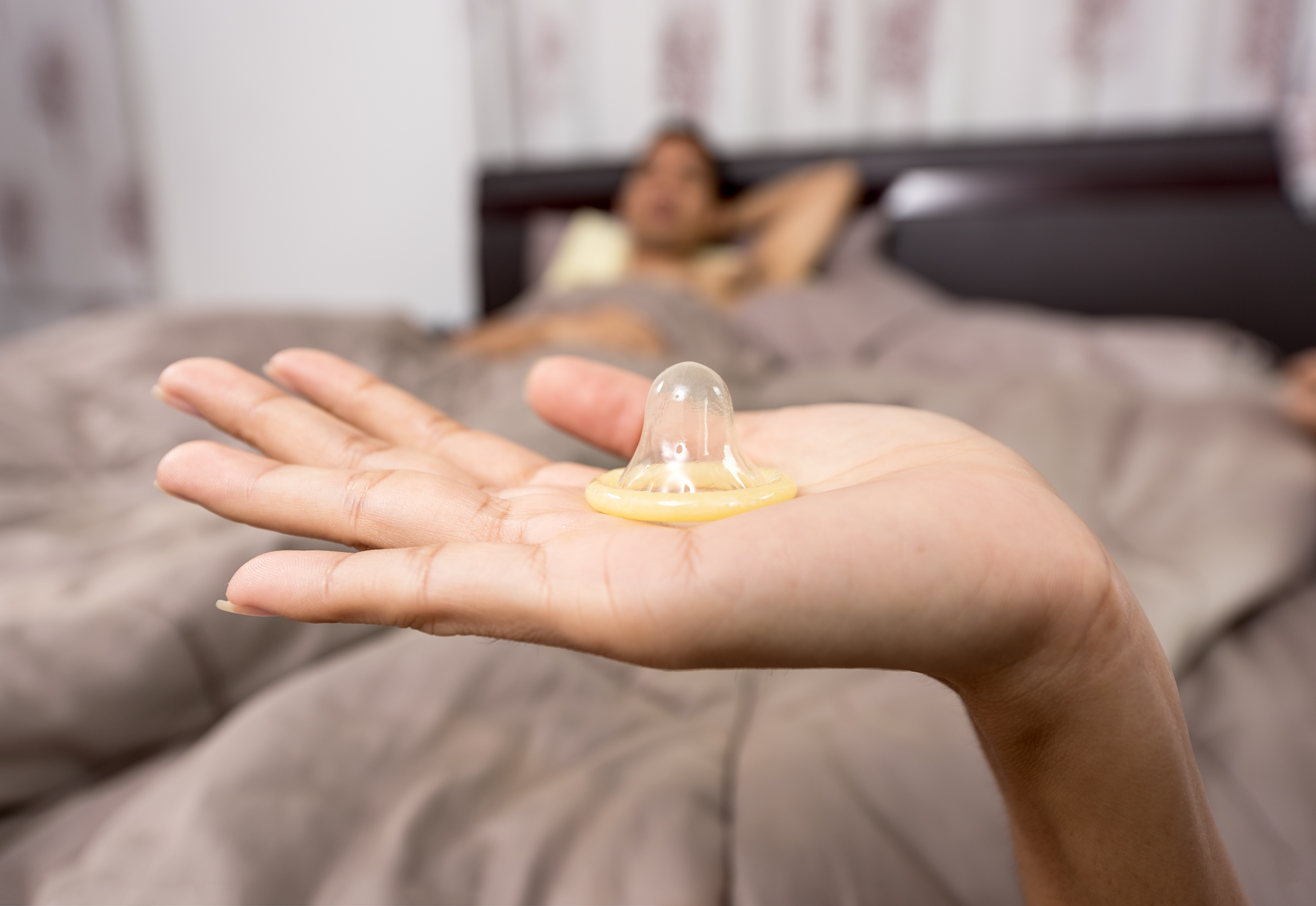Remember when our value was tied to how well we fared in exams? To the A’s or B’s that we got in our subjects? Well this is all going to change for our children.
In an unprecedented move, our Ministry of Education had announced that they will be making several changes to exams and assessments in school. Some of these changes include removing weighted assessments (including class tests, group projects) and exams for Primary 1 and 2 students. Mid-year exams will also be removed for Primary 3 and 5, as well as Secondary 1 and 3 students.
These are bold changes, as Singaporeans have long questioned the effectiveness of our education system and the emphasis we seem to place on academic grades.
It’s a move welcomed by many, but along with these changes are several other concerns. For one, when we take away one of the major means of gauging a students understanding and proficiency of a subject, what yardstick are we going to assess them with moving forward?
Speaking at a recent forum with parents and students, Education Minister Ong Ye Kung posed the question back to parents: What is the yardstick that they will use to measure their success as a parent?
It’s a difficult question to answer, because all our life up till the point where we start working, we have been measured by the A’s, B’s, or C’s from our performance on test and exam papers. These grades have inadvertently transformed into something our society uses to define our worth. It is why we have a society that deems students in the ‘normal’ stream as of a lower calibre than those in the ‘express’ stream.
These cliched perspectives are so deeply entrenched in our society that it is hard for us to envisage how else we can measure the success of a student if it is not through exams and grades.
Are Exams Important?
In a quick poll I did on Instagram, 33 out of 41 respondents actually voted that exams are good for students.
These are the same group of people who, through my understanding of our generation, have complained about how we have wasted so much time in our earlier years learning and being tested in subjects that have no relevance to our lives today.
However, 80% of them maintained that exams are still important, because it helps to assess a student’s grasp of a subject.
“Exams provide feedback. Its replacement must still critique a student.”
It is because of the kiasu culture we have in Singapore that have turned it into a competition of grades rather than a way to assess a student’s progress, as parents want their kids to ace exams to get into better schools, which they believe will give their child a better shot at success.
This is further egged on by the disparity in which we judge and treat people of different academic backgrounds. It lies in the way scholars are said to enjoy a faster career progression, and in the way some we tend to compare the quality of students based on their alma mater.
Even if you and I don’t judge people by their academic level, the society will. We still compare schools and we still regard graduates from esteemed schools, like Harvard, with higher respect.
How Do We Measure Somebody’s ‘Worth’ Without Grades?
The purpose of removing exams is to reduce the emphasis on academic results, but more importantly, what are we replacing it with?
One 27-year-old, Vic, explained that it’s less of abolishing exams than changing our perspectives: “I think students’ education or knowledge can still be measured with tests but the stigma of failing a test should be abolished. What I'm proposing is a mindset change.”
She also proposed for an abolishment of a grading system, which is one of the changes implemented by MOE, where details like grades and class position will be removed from end-of-year assessments. Secondary school students will also be streamed according to subjects instead of the ‘Express’ or ‘Normal’ streams that we had in our time.
In this case, the changes are also a way to free up time for students to pursue non-academic interests. In order to get there, however, schools and teachers need to be able to create a wholesome environment that enables students to achieve that.
On the aspect of achieving academic rigour, suggestions I got from respondents include challenging students with problem-based assignments to cultivate in them analytical and critical thinking abilities which will help them in the future.
Other suggestions include group projects or learning trips that allow students to explore a broader range of non-academic interests. These are alternatives that will help expose students to both academic and non-academic areas of interest.
Unsurprisingly, most of the (serious) suggestions given were centered around the idea that a student should be prepared to handle the intricacies of real-world and work situations, more so than acing exam papers.
The problem lies in our obsession with the ten-year series, which is characteristic of students who are more preoccupied with learning how to ace exams than learning the concept of what’s being taught in each subject.
One respondent, who’s currently assisting her father in running her family’s F&B chain, said: “A lot of students just learn how to deal with exam questions, instead of understanding the concept of how the content or solution work. Knowing and understanding how things work goes a longer way than knowing how to score in exams.”
At some point, all of us would have talked about how there are many things we learnt in school that have absolutely no relevance to our lives today. I, for one, have no idea how to apply pythagoras theorem to my life or line of work—not that I can even remember the concept today.
With that said, it was my decision to pursue a career that does not require proficiency in math. There are plenty of other professions that requires one to apply maths at work, like engineers.
Subjects like maths or history will not necessarily help us in our jobs, nonetheless, I see them as a foundation that sets the base for us to further pursue our preferred vocations in our tertiary years. If anything, these valuable general knowledge help us form a more well-rounded view and understanding of the World. Let’s not forget that Singapore’s education system is seen by outsiders as one of the best in the world, and perhaps it is for these knowledge we are armed with that makes us ‘superior students’ to the rest of the world.
Though, arguably, having to study all those ‘foundational subjects’ means a longer route to success. In comparison, Koreans (for instance) can start training in K Pop from as young as 11. Then, at 17 or 18 where an average Singaporean would have just gotten the opportunity to start pursuing vocational studies, these K Pop trainees would have already made their debut in the industry.
Which brings us back to the question of whether Singapore, as a whole, is capable of embracing students with non-academic passions.
Mindsets Have To Change
If a student wishes to pursue career paths in performing arts or culinary arts, will schools and educators be able to offer resources to nurture this student in those areas?
Should there already be programmes and resources in place, will parents and by extension, our society, be able to accept and encourage a child to pursue such non-conventional pathways at the tender age of 11?
At the end of the day, this all depends on what we, Singaporeans, want to place value in: In achieving academic excellence before attempting a vocation, or in embracing a more progressive education that not only allows, but encourages students to explore beyond the English, Math, and Sciences, from a young age.
Regardless, these changes are a work in progress, and whether our children in the future reaps the benefits of this system is heavily dependent on how we, as future parents, react to the changes that MOE has rolled out.
For as long as we have kiasu parents around, the competition to be The Best will always be there.
At the end of the day, it boils down to what we want to instil in our 15, 10, or even 3-year-olds. If grades are not the way forward, what do we want to teach and assess our kids with?
With qualities like kindness and compassion? With communication skills like speaking and presenting? Or with a mix of soft and vocational skills to help them navigate the complexities of the world?
Also read: Is There A Need For Better Sex Education That’s More Than STDs And Abstinence?.
(Header Image Credit: Wikipedia)
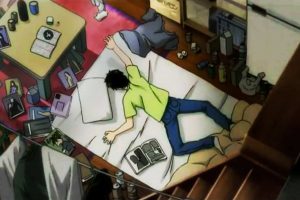
WHAT'S HIKIKOMORI?
For the uninitiated, hikikomori is a term used to describe those who rarely leave their house, and seek extreme degrees of isolation. Some never set foot outside their homes. Others occasionally do, heading out to buy food or even to the cinemas for the latest blockbuster, but all of them are completely, socially isolated. They would even limit their interaction with their own family members. Although this social phenomenon is predominantly widespread in Japan, I recently stumbled upon a Reddit thread that tells me that we too, have our share of social recluses hidden in their rooms somewhere, unseen by society. Through a local forum, I stumbled upon Andrea’s story. Back then, Andrea cooped herself up at home for eight consecutive months. Waking up at five every morning, she spends her time browsing Reddit, reading and binging on TV series, only leaving her room for lunch and dinner, which her parents would prepare for her. At around 11 pm, she will head to bed and the same routine repeats for months, and in those months, she did not step out of her house once.Her home had become a place of solace for her, a fortress she can’t bear to leave.Likewise, this is the case for the many hikikomori in Singapore, who have taken to forums to pour the feelings that they have hidden away from their friends and family.
WHY DO THEY ADOPT THE HIKIKOMORI LIFESTYLE?
Hailing from a ‘financially comfortable’ background, Andrea is aware that she is more fortunate than most, as she could afford the option of not having to work or fend for herself. But because of that, she feels more pressured to pay her parents back for all that they have done for her. The low self-esteem, crippling social anxiety, and negative outlook on life that came from her being bullied in school when she was younger kept her imprisoned. The self-imposed pressure and the expectations about the future stressed her out and caused her to feel even more helpless. When she finally entered the workforce, work became her life. All she did was wake up, go to work, head home to have dinner with her parents, and repeat. Due to her micromanaging boss, she grew to resent work. Even so, she continued working for some years to save up a sum of money before eventually resigning, dampened by the rat race. “So after that, I didn’t really have a plan. I just stayed home. Months quickly turned into years. And because I was used to a solitary lifestyle of just reading and watching drama and anime, I just shut myself off from society and basically became hikikomori, just living off my parents and my savings.”ONLY FOR THE PRIVILEGED?
Of course, not everyone is privileged enough to be able to just drop everything and withdraw from society in the first place — most of us are not as financially blessed. Through r/hikikomori, I was able to speak to another Singaporean hikikomori, 24-year-old Josh*, who shared how he was once a hikikomori. Like Andrea, Josh comes from a financially stable family.“Maybe we were too sheltered. Maybe we were too spoiled and everything comes to us easy and without any barriers. Back then, I felt that no matter how useless I was, I would still be able to live comfortably, or still be able to live somehow.”An avid fan of Disney’s classics, Josh had a grandiose dream of being a 2D Animator for Disney. When news broke that Disney closed down their 2D animation company, his hopes and dreams were dashed. Dejected, he let himself waste away, passing the days by gaming and watching anime at home.
WHAT'S THE CAUSE FOR THIS?
For many of us, such behaviour is aberrant and tough to comprehend, much less empathise with. It’s not surprising for us to jump on the conclusion that hikikomori chose to stay cooped up at home because they are just “lazy” and “spoiled”. “We all have problems, so why can’t they just do something about their problems?” But unlike what we think, the hikikomori syndrome is not another convenient excuse to be idle.In fact, most, if not all, hikikomori hate the plight that they put themselves in, and they are ashamed of it.“When I was hikikomori, I lost all desire for wants. Normal things like going to movies or buying expensive new things don’t interest me anymore. I don’t know why I exist, to be honest. Sometimes I can feel my parents’ disappointment in me and I don’t feel good too,” shares Andrea. They have confined themselves to their homes, but most hikikomori actually want to return to society. However, the fear and anxiety of how society may react to them. Even if they manage to take the first step out of their homes, they are plagued by this constant fear that they are being judged by those around them, afraid that the world wouldn’t come to accept them because of their past. Maika Elan, a Photographer exploring the topic of hikikomori, shared on National Geographic that “Over time, hikikomori lose whatever self-esteem and confidence they had, and the prospect of leaving home becomes ever more terrifying. Locking themselves in their room makes them feel ‘safe’.” Similarly, Andrea admitted that the very paranoia of being judged for being a hikikomori is the toughest obstacle she had to overcome. She would often slip back into isolation because of it. Thanks to volunteer work at a church, Andrea was able to break out of the hikikomori syndrome. She eventually managed to land herself a job through one of the other volunteers. As for Josh, he stumbled upon the animes Re:Zero and Konosuba, which shifted his perspective on life. Both shows feature male protagonists who were hikikomori and Josh was able to relate to them strongly. “In Re:Zero, it tells us that no matter where you are, nothing’s going to change if you don’t put in any effort to take charge and improve yourself.” Witnessing his friends’ success also pushed him to eventually change his lifestyle.
“What gives them the drive to keep doing what they do? Why are they set on improving themselves and going out there to find jobs and socialise, and to be proactive with their lives?”These were the questions that Josh posed to himself, and subsequently embarked on a quest to uncover. “Sometimes it’s hard, but you just have to remember that there are other people out there who are struggling and still trying their best as well.” Today, he works as a Digital Designer, which is not too far off from his initial dream. Although, there are others who struggle to break out. “It all started after he finished his degree overseas and came back. He didn’t find work and just stayed at home gaming and surfing the net. We’d ask him to come out for coffee or meals but he’d always turn us down.” Tim*, a male in his 30s, shares with me about his friend who has been a hikikomori for over 10 years. “I’ve a feeling that the shame of being long unemployed while everyone else is working just drives him to become a hikikomori. I guess his parents still buy him food or give him spending money so he doesn’t need to force himself to get a job.”
A VICIOUS CYCLE OF FEAR AND PARANOIA
Although hikikomori is a social condition that has not been widely recognised as a mental illness, many of them do require mental health care. Some turn to this reclusive lifestyle due to a lack of purpose or existential crisis while others do so as a form of rebellion to cope with trauma such as childhood abuse or bullying. While hikikomori wish to recover, they are so ashamed of their past that it freezes them up, causing them to retreat back into their shelter. However, the longer they isolate themselves from society, the harder it will be to integrate back into it. It’s a vicious cycle that they are dealing with. For such people who haven’t interacted with anyone nor formed any ‘proper’ relationships, it could be tougher for them to reintegrate into society as they grow older, especially if their family members (like their parents) are no longer around to support them. In Japan, this has become a real problem. These days, it’s an absolute nightmare if we were to be void of our handphones, computers, and the internet. While technology is not the root cause of the hikikomori syndrome, it provides a gateway to endless virtual worlds that we can immerse ourselves in. Nat*, another Redditor, says he usually spends an average of 10 hours on his computer and does not see the need to leave his home. Whether it’s food or entertainment, technology has made that conveniently accessible and available for us. There are even avenues to learn and work ‘virtually’, with online classes and freelance jobs. All of these make it even easier for one to slip into the hikikomori lifestyle. With that said, however, completely isolating oneself from society is not healthy, and should not be normalised. Regardless, Josh hopes that hikikomori will have it in them to realise that they are responsible for themselves, and find the strength in them to overcome it, just like he did.“There’s only so much that others can help you with. Only you can change yourself. Even if it’s for your parents or yourself, I hope you will find it in you to want to get better.”“We all are living for a reason. We need to reflect on that more often, to put our lives into perspective. Once things are in perspective, it will all make sense in the end.” “After all, life exists and thrives beyond these four walls, but it’s up to us whether or not we want to open the door to live.” *Names have been changed to protect the identity of the individuals. Also read: It’s The 21st Century, Why Do We Still Treat Maids Like Slaves? (Header Image Credit: Unsplash)
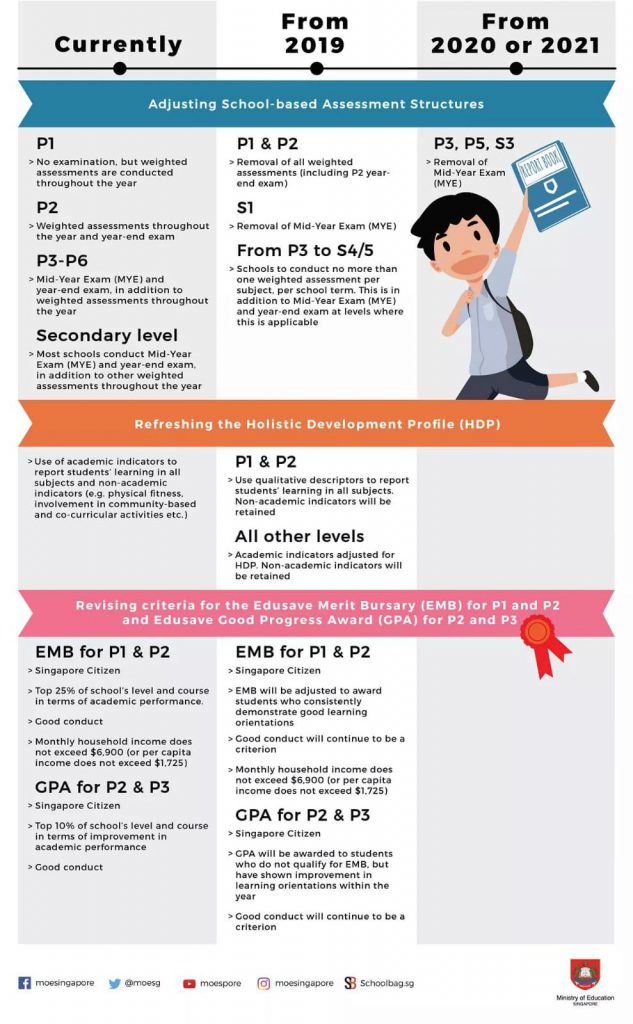 Image credit: Ministry of Education
While the change is MOE’s effort in further emphasising the commendable “Life beyond Grades” movement, it came as no surprise that a lot of Singaporeans are unhappy with it.
Some of the complaints came from parents whose children will be affected by the change. It’s only natural for one to be concerned about their child’s education, especially when their child will be stepping into an ever-changing education system and one that is so different from what they went through themself.
However, as much as Singaporeans do love to complain, the common complaints, or rather, concerns raised by parents do carry some weight.
Image credit: Ministry of Education
While the change is MOE’s effort in further emphasising the commendable “Life beyond Grades” movement, it came as no surprise that a lot of Singaporeans are unhappy with it.
Some of the complaints came from parents whose children will be affected by the change. It’s only natural for one to be concerned about their child’s education, especially when their child will be stepping into an ever-changing education system and one that is so different from what they went through themself.
However, as much as Singaporeans do love to complain, the common complaints, or rather, concerns raised by parents do carry some weight.
KIDS WILL BECOME UNPRODUCTIVE
Let’s think about our own childhood for a moment and try to remember a time we studied because we genuinely wanted to study. Chances are, the only time we studied that diligently was when we had to for exams.
"Exam period was the only time I could get my son to study properly. It’s going to be hard to get him to study now." - Lavenia, parent of 7-year-old in P1Like NTB2DO in the screen capture above, several users on the HardwareZone forum have been discussing the move since MOE’s announcement. While a handful of these users were just complacent Singaporeans without children, just eager to put their opinions out there, there is an abundance of those who shared their legit concerns on what this would mean for their children’s future. We cannot expect children (or anyone) to enjoy taking exams, but it’s undeniable that exams have significantly pushed many children to be a little bit more disciplined and studious. We also can’t deny the amount of distractions kids have these days. Back when millennials were children ourselves, all we had were our Barbie dolls, Game Boy and a handful of other toys and we still managed to get distracted. Just look at how many distractions kids have today. “I’m definitely worried that my son will spend more time playing more games and what not," says Lavenia. Could this mean more pressure for parents to supervise their children?
UNPREPAREDNESS WILL LEAD TO STRESS
One of the reasons behind removing exams for P1 and P2 is to remove unnecessary stress that we’re embedding into young children. However, I call bullshit on the idea that having exams at that age causes unnecessary stress to children. Exams aren’t the main cause of stress in a child. Try and recall if you felt stress at taking exams at that age. Unless you had a tiger mom or dad, you probably didn’t feel any overwhelming amount of stress from exams. HardwareZone user NTB2DO gives us another great example:
“I would want my daughter to be exposed to going through an exam in P1 or P2 at least, because she’d have more time to warm-up before her streaming year.” – Ilena, parent of a child enrolling into P1 next yearWith the pressure from their parents, coupled with how they're going to be introduced to 'the exam environment', students could find themselves in a more stressful situation than before.
DOESN’T CHANGE THE ‘GRADES ARE EVERYTHING’ MINDSET
It’s no secret that most Singaporeans highly value academic success, and while MOE has good intentions, the recent change will not fully address the “kiasu” mentality instilled within Singaporeans. The mentality that grades and academic growth triumphs everything else. Exams or no exams, we’ve grown up associating success with how well we do in school. We grew up having our parents, teachers, and society as a whole assess us based on our academic qualifications. Let’s face it, these children will still be assessed this way when they eventually progress to their last years in primary and secondary school and so on. And the best way to achieve the As to get them to their ‘ideal schools’ is still by mugging and memorising pages and pages of information. Because the better your memory, the higher your likelihood of scoring an A, right? To make things worse, who can forget how our parents just had to compare us to our siblings, friends, cousins and even neighbours when we 'didn't do as well’. This 'tradition' lives on even until today, and it isn’t just the children. Parents are feeling the pressure themselves.“I feel intense pressure coming from kiasu parents all around me. The competitive academic culture and the pressures that it places on parents and thus on children are very real.” - Germaine, parent of a child enrolling into P1 next yearAccording to Germaine, parents around her are sending their kids for enrichment classes that teach them to read, spell, and solve math problems way before the enter primary school. Everyone wants their child to be the best in the race, and this consequently contradicts MOE’s stance of wanting to focus more on kids’ personal development over academics in the first two years of primary school.
“If parents and teachers continue to stress over the consequences of not getting good grades, we’ll be right back where we started.” - Esther, parent of 7-year-old in P1
A GOOD FIRST STEP, WITH ROOM FOR IMPROVEMENT
While MOE’s latest move is commendable, it’s a shame that it just may not be enough. Yes, taking away exams lets kids be kids a little longer. Yes, removing rankings from report cards do help to discourage comparisons amongst peers. And yes, there shouldn’t be emphasis on grades down to the decimal point. But in an education system that deems a student a failure solely based on their grades, change doesn’t happen overnight. These are great initial steps but to truly make a change, MOE and parents have to unite and understand each others concerns as well. Be it changing the curriculum to include more experiential learning methods, or overhauling the entire education system, whatever step MOE decides to take next, it must take into consideration not only how it affects schools and students, but how it affects parents. Only when the changes address the prevailing concerns then will Singaporeans be convinced that there will be real change. Also read, In Defense Of My Arts Degree: Why The Arts Are Absolutely Essential (Header Photo by pan xiaozhen on Unsplash)Complementing the messages of preventing STDs were lessons on using condoms for safe sex. Naturally, watching a grown adult roll a condom down a banana stood out for many.“‘Don’t have sex or you’ll get pregnant and die!’ - something that I took away when they taught us about sexually transmitted diseases (STDs) in secondary 3” – Aisha, 25
“When learning how to wear a condom properly with the use of a banana as example, they told us, ‘always remember to the pinch the top!’” – Natasha, 27

SINGAPORE’S ABSTINENCE-ONLY APPROACH
The Ministry of Education (MOE) values abstinence as the best approach in the prevention of STDs and unwanted pregnancies. But this is unrealistic. Teens are having sex, and it’s silly for anyone to think otherwise. That makes it all the more crucial that teens are provided with necessary information to help them in make informed choices. Instilling fear of STDs and AIDS in them isn’t going to work.The more you tell a teenager not to do something, the more s/he will do it. Rather than trying to prevent the impossible i.e. teenagers having sex, and living with the idealistic mindset that teens will abstain till marriage, schools should address the obvious straight-on. It’s time sex education lessons started giving students answers to questions that they shouldn’t be looking for on Google.“I remember that a lot of the focus was not really on the process, but on the DANGERS of unsafe sex. Telling teenagers ‘DO NOT HAVE SEX, YOU WILL GET HERPES’ just makes them scared to seek help if they need it.” – Melissa, 28
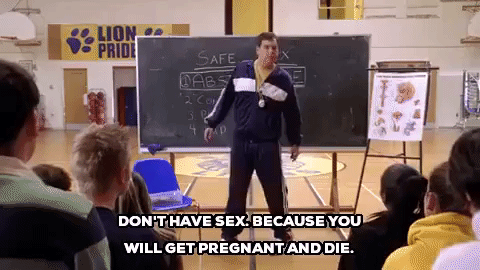
“It was a lot of out-dated scaremongering and it didn't maturely teach teenagers how to practice safe sex at a point in their lives where they would be naturally sexually curious, if not already active.” – Nikki, 25It is a problem and we need to rethink the way we teach sex education because it is invaluable knowledge that will impact the rest of our lives. Abstinence and encouraging safe sex are good messages, but there are many bigger concerns that teens will come to have when they become sexually active.
LET'S TALK ABOUT CONTRACEPTION
Aside from teaching teens how to put a condom on a banana, our sex education barely touches on birth control and contraception.“The school was so obsessed with talking about the dangers of sex that they didn't give us practical advice, like informing us about the various forms of birth control and where to get them.” – Sophia, 23As a teenage girl myself once, I knew close to nothing about contraceptives. I had only heard about condoms and learnt about the existence of birth control pills through movies and television. When I reached a stage in my life when I had to use it, I jumped to Google to gather all the information I now know about contraception. I wish my school would have given me a “Contraceptives 101” crash course (or even a sex education talk worth remembering). Let’s take the image below for example. It shows us the various methods of contraception. Even looking at it now, I can’t say that I am entirely sure how some of these contraceptives work. Can I Google it? Sure. But I shouldn’t have to.
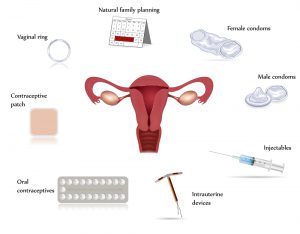
REAL-WORLD SITUATIONS
As parents to a teenage daughter, my parents became extra paranoid about the people I hung out with once I hit puberty. And by people, I mean boys. The compelling need to protect daughters from danger has been ingrained into people’s minds for centuries. There’s a chronic fear when it comes to raising daughters that no one openly talks about, but we all know it’s there. Conversations like these are often kept hush-hush. But how can we hope to eliminate a fear without talking about it? There have been many cases over the past couple of months that have opened up a can of worms over the concept of consent before or during sex. “If a girl doesn’t say no, does it mean yes?” “But they’re in a relationship, still need to ask permission meh?” “The girl knew what she was getting into the moment she started making out with him.” Be it the Eden Ang controversy, or the<a href=" RP graduate who got flamed online for her blog post describing an incident that occurred between her and her then-boyfriend, these “discussions” have warranted that we re-evaluate the way we think and talk about sex. Talking about abstinence doesn’t help when you find yourself in a situation beyond your control. And knowing about the consequences of unsafe sex (STDs) wouldn’t matter when it’s too late to prevent it. Concerns that sex education should also touch on include dealing with undesirable situations. For example, teaching girls and boys about consent. The United Kingdom has recently reformed its sex education program to include lessons on consent as well. Being able to ask and clarify before making an advance, saying no to unwanted advances and understanding the verbal and visual cues of consent are all important in creating a safer space for teens not just in schools, but outside school grounds as well. Talking about the issue with their peers and discussing and clarifying their concerns with educators can help teens understand what a healthy relationship looks like.“Boys should know to ask for consent and to cope with their sexual urgencies and girls should be empowered to say 'no' if they don't want to have sex.” – Victoria, 26Sex needs to be openly discussed. By keeping this conversation confined behind closed classroom doors and separating girls and boys during this talk, we’re only reinforcing the message that sex is “bad” and “wrong”. If we teach sex education the way we teach students Math, for example, we’ll be creating a safe space where students wouldn’t need to shy away from seeking help if ever they find themselves in a predicament. And if teens today find themselves feeling confused or conflicted like we once did, all they'd need to do, is ask. While the act of sex may be done behind closed doors, the conversation shouldn’t have to be. Also read: Let's Talk About Sex: 15 S'poreans On Whether Sexual Compatibility Is Important In A Relationship
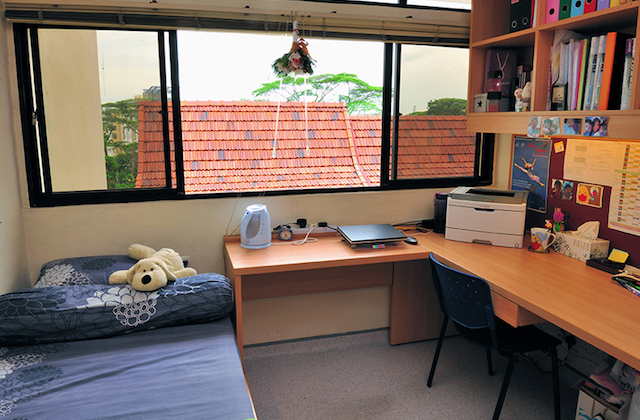
1. Splashing Good Time
You would think that the deepest conversations happen in classrooms, or when someone gets drunk. For hall residents, some of their deepest and most meaningful conversations happen in their shared bathrooms. Bathing used to be a private affair, until you live in hall, where the bathroom becomes a new social setting with it's own set of unsaid rules. Couples have also been known to 'triple date' in the men’s bathroom. Imagine this: girlfriend scrubbing her boyfriend’s back while he grumbles about the latest soccer match with his two bros in the cubicles just beside. Of course that’s as much physical intimacy that’s accepted in shared bathrooms. Don't cross the line!2. Lost and Never Found
Hang your clothes out often enough and someone might mistake your laundry line for a pasar malam store without a tenant – free clothes up for grabs! During your stay at hall, you may notice a few of those tiny pieces of cloth you wear closest to your body go missing. Congratulations, you have attracted the attention of the residential panty thief. Keep calm and call the police, although few have been caught despite even though several reports have been made.3. Budget Innovation
Instead of using the clothing line where your laundry is vulnerable to the unpredictable weather and an easy target for the residential panty thief, dryers are a better option. But at $1 per use, most broke university students wouldn’t use the dryer until they have accumulated a reasonable pile of laundry. Thankfully, some hall ancestors have discovered a hack that costs nothing and dries your laundry faster. Meet the microwave. Not only is it good for heating up your late night snacks, they dry your clothes efficiently too! More importantly, it's free. But in all seriousness, drying your lingerie where people heat their food probably isn’t hygienic. Can you imagine taking out your freshly-microwaved underwear only to have it smelling like chicken rice?4. Eye Sore
One of our friends shared a horrific experience where she witnessed her hall mate masturbating through the open window of his room. Another shared how he would always avoid looking out of his room windows because girls in the opposite block would change without drawing their curtains. While everyone makes a conscious effort not to impose on someone else's privacy, let's not make it hard for other people! Let the poor dude look out his window for his 30 seconds eye break without worrying about being called a pervert. Catching a glimpse of someone naked by accident shouldn't be a norm.DRAW. YOUR. CURTAINS.
Needless to say, no one wants to deal with the awkwardness that ensues witnessing one of your friends naked, or having them see you naked accidentally. So unless you enjoy baring it all to anyone and everyone, close your curtains, draw your blinds, and shut the doors before you start stripping.5. Door-to-Door Sales
Knock knock. Who's there? Just your door-to-door salesperson selling herself by the hour. According to some ex-hall students, those who live in residences with a higher population of foreign students often get offered sex at their door. As sad as it sounds, this is one of the limited ways foreign students can support themselves financially. Legally, they're not allowed to work and it's not easy finding consistent gigs that will pay cash under the table.